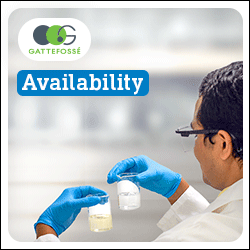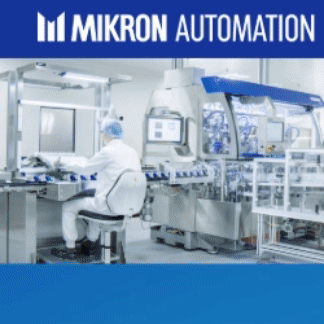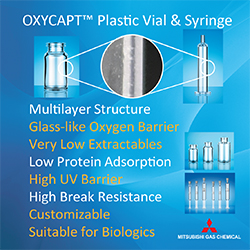Aravive Announces First Patient Dosed in Phase 1b/2 Clinical Trial
Aravive, Inc. recently announced it has dosed its first patient in an open label Phase 1b/2 clinical trial to evaluate the safety, pharmacokinetic, and preliminary clinical activity of AVB-500, including progression free survival. The trial will enroll patients with advanced clear cell renal cell carcinoma (ccRCC) that have progressed on front-line treatment.
AVB-500 is an ultra-high affinity decoy protein that targets the GAS6-AXL signaling pathway associated with tumor cell growth and is currently being evaluated in clinical trials for the treatment of ovarian, kidney, and urothelial cancer.
“The preclinical data of AVB-500 in ccRCC suggest a great potential in treating this cancer without adding toxicity,” said Gail McIntyre, PhD, Chief Executive Officer of Aravive. “Given that there is a large unmet need for effective treatments in renal cell carcinoma, we look forward to advancing the development of AVB-500 to potentially improve outcomes for patients with renal cancer.”
Kidney cancer is a leading cause of cancer-related deaths in the United States and is among the 10 most common cancers in both men and women. ccRCC is a cancer of the kidney and accounts for more than 75% of malignant kidney tumors. Metastasis to distant organs, including the lung, bone, liver, and brain is the primary cause of death in kidney cancer patients, and only 12% of people with metastatic kidney cancer will survive past 5 years. According to the American Cancer Society, it is estimated that there will be approximately 76,080 new cases of kidney cancer and 13,780 people will die from this disease in the US during 2021.
“AXL/GAS6 is associated with poor prognosis and resistance mechanisms in renal cell carcinoma. This trial will focus on safety and early efficacy signals of AVB-500 in combination with cabozantinib in patients who have progressed after front-line treatment of kidney cancer. This trial presents a unique opportunity to study a new therapeutic target in combination with cabozantinib,” said Kathryn Beckermann, MD, PhD, Assistant Professor, Division of Hematology and Oncology, Vanderbilt University Medical Center and lead investigator for the trial.
The Phase 1b portion of the trial will evaluate AVB-500 in combination with cabozantinib, a small molecule inhibitor of the tyrosine kinases c-Met and VEGFR2. The trial will enroll up to 18 patients in three dosing arms (15 mg/kg, 20 mg/kg and 25 mg/kg) to evaluate tolerability, pharmacokinetics, pharmacodynamics, and clinical activity. The controlled, randomized, open-label Phase 2 portion of the trial will enroll up to 45 patients and investigate the recommended AVB-500 dose identified during the Phase 1b portion of the trial in combination with cabozantinib versus cabozantinib alone. The primary endpoint of the Phase 2 portion of the trial is progression-free survival and the secondary endpoints are objective response rate, duration of response, clinical benefit rate and overall survival. The Phase 1b/2 trial is listed on clinicaltrials.gov NCT04300140.
AVB-500 is a therapeutic recombinant fusion protein that has been shown to neutralize GAS6 activity by binding to GAS6 with very high affinity in preclinical models. In doing so, AVB-500 selectively inhibits the GAS6-AXL signaling pathway, which is upregulated in multiple cancer types, including ovarian cancer and clear cell renal cancer. In preclinical studies, GAS6-AXL inhibition has shown anti-tumor activity in combination with a variety of anticancer therapies, including radiation therapy, immuno-oncology agents, and chemotherapeutic drugs that affect DNA replication and repair. Increased expression of AXL and GAS6 in tumors has been correlated with poor prognosis and decreased survival and has been implicated in therapeutic resistance to conventional chemotherapeutics and targeted therapies. AVB-500 is currently being evaluated in clinical trials and has been granted Fast Track Designation by the US FDA in platinum-resistant recurrent ovarian cancer. Analysis of all safety data to date showed that AVB-500 has been generally well-tolerated with no dose-limiting toxicities or unexpected safety signals.
Aravive, Inc. is a clinical-stage oncology company developing transformative therapeutics designed to halt the progression of life-threatening diseases. Aravive is based in Houston, TX, and received a Product Development Award from the Cancer Prevention & Research Institute of Texas (CPRIT) in 2016. Aravive’s lead product candidate, AVB-500, is an ultra-high affinity decoy protein that targets the GAS6-AXL signaling pathway associated with tumor cell growth. Aravive successfully completed a Phase 1b trial of AVB-500 in platinum-resistant ovarian cancer and is in the process of initiating a registrational Phase 3 trial of AVB-500 at a dose of 15 mg/kg. While the Phase 1b trial of AVB-500 in platinum resistant ovarian cancer was a safety trial and not powered to demonstrate efficacy, all 5 patients in the 15 mg/kg cohort experienced clinical benefit, with 1 complete response, 2 partial responses, and 2 stable disease. For more information, visit www.aravive.com.
Total Page Views: 1184













